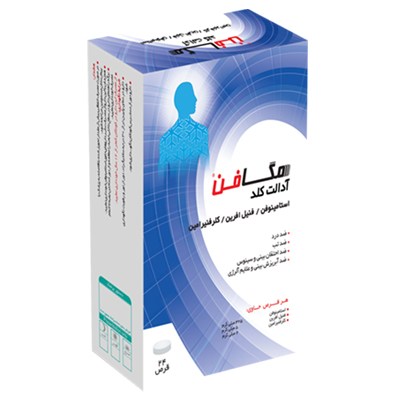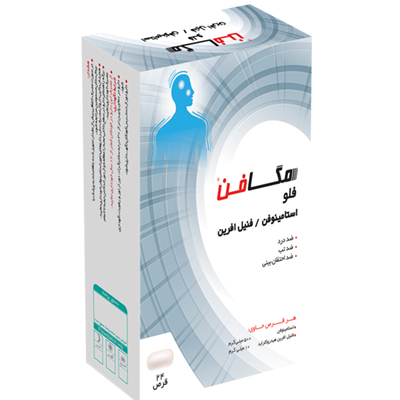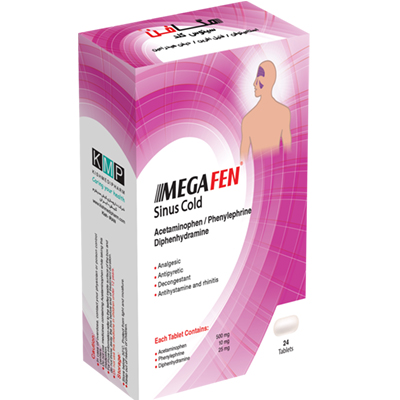Psoriasis is a chronic, autoimmune inflammatory disease that affects the skin and causes unpleasant symptoms such as redness, itching, and scaling. Due to the complexities of the immune system and its chronic nature, this disease requires efficient and precise treatments. In the meantime, the use of ampoules to treat psoriasis as a new and effective method has attracted the attention of many doctors and patients.
Benefits of using ampoules to treat psoriasis
Using ampoules to treat psoriasis is an effective, fast, and comprehensive solution to control symptoms and improve patients' quality of life. Rapid effectiveness, systemic effect, reduced need for other medications, and improved physical and mental quality are some of the most important benefits of this treatment method. With careful safety precautions and medical monitoring, ampoules can be considered one of the main pillars of psoriasis treatment and an important step in the path of patients' recovery.
- Rapid effectiveness in reducing symptoms: One of the most prominent advantages of ampoules for the treatment of psoriasis is their rapid effectiveness in reducing the symptoms of the disease. Unlike topical medications that require a longer time to take effect, ampoules enter the bloodstream directly and cause immediate inhibition of inflammatory processes. This is especially important in severe cases of psoriasis, where rapid control of inflammation and itching plays a decisive role in improving the patient's condition.
- Systemic and comprehensive effect: Ampoules are able to affect the entire immune system and regulate inflammatory responses due to their direct entry into the circulatory system. This feature allows not only skin symptoms, but also internal inflammation and underlying factors of the disease to be controlled. Therefore, ampoule treatment offers a more comprehensive and in-depth approach to combating psoriasis compared to topical medications.
- Reduced need for topical and oral medications: In many cases, ampoule treatment reduces the need for frequent use of topical or oral medications. In addition to reducing the drug burden on the body, this prevents the side effects of long-term use of topical medications, such as thinning of the skin or digestive problems caused by oral medications. Targeted and controlled use of ampoules allows patients to experience a better quality of life.
Are psoriasis injections safe?
Ampoule therapy for psoriasis is one of the most advanced methods of controlling this inflammatory and autoimmune disease. However, the safety of this treatment method is always a concern for patients and doctors. Most of the ampoules prescribed for ampoules for psoriasis are biologic drugs or immunosuppressants that directly target inflammatory molecular pathways.
The safety of these drugs depends on continuous monitoring of vital organ functions such as the liver, kidneys, and bone marrow. If careful monitoring is not done, complications such as weakened immune systems, increased risk of latent infections, or even hematological problems may occur. For this reason, periodic tests and continuous assessment of the patient's general condition are essential.
With proper medical advice and expert supervision, the benefits of using injections for psoriasis can outweigh the potential risks. Accurately identifying the patient's condition, reviewing the history of underlying diseases, and selecting the appropriate type of injection are critical steps in ensuring the safety and effectiveness of treatment. Ultimately, successful treatment requires informed decision-making and coordination with the treatment team.
Effective ingredients in ampoules for the treatment of psoriasis
It is of great importance to accurately identify the active ingredients in psoriasis treatment ampoules and their mechanism of action. These compounds, by aiming to inhibit inflammation, regulate the immune response, and reduce the proliferation of skin cells, help to significantly improve the symptoms and quality of life of patients. Choosing the right medication and following safety precautions are the keys to the success of injectable treatments in dealing with this chronic and complex disease. Types of active ingredients in psoriasis ampoules:
The remarkable effects of biologics injections on the immune system in psoriasis
Biologics are new drugs made from specific proteins or antibodies that specifically target specific pathways in the immune system. These compounds, such as interleukins and tumor necrosis factor-α (TNF-α), play a key role in the inflammatory processes of psoriasis. Biologics provide significant improvements in symptoms by reducing inflammation and regulating the immune response and are usually prescribed for moderate to severe cases of the disease.
Ampoules of injectable corticosteroid drugs for severe inflammation and psoriasis
Corticosteroids are anti-inflammatory and immunosuppressive compounds that are also used in injectable form. These drugs control inflammation rapidly by inhibiting the production of inflammatory mediators and reducing the activity of immune cells. Although they have rapid and significant efficacy, long-term use of corticosteroid injections for psoriasis and other severe inflammations should be done with caution and under close medical supervision due to possible side effects.
From corticosteroid medications such as Megacort ointment It is also used topically to relieve the inflammation, burning, and itching of psoriasis.
Antimetabolite Ampoules and Immunosuppressants in Psoriasis
This category includes drugs that help control psoriasis by inhibiting cell division and reducing immune system activity. Among these drugs is methotrexate, which is a common injectable treatment. Methotrexate ampoules for psoriasis interfere with the DNA synthesis pathway of immune and skin cells, reducing the rate of cell proliferation and relieving inflammation. Due to its systemic side effects, its use requires special care.
Comparison of types of ampoules for treating psoriasis
Injectable treatments play a key role in managing psoriasis, especially in severe or resistant cases. Below, we compare the common types of psoriasis injections:
Biologic Ampoules: The most targeted injectable ampoule treatment for psoriasis.
- They work by precisely inhibiting inflammatory cytokines such as TNF-α, IL-17, and IL-23.
- Relatively rapid onset of action and high effectiveness in reducing plaque.
- Requires monitoring for chronic infections and immune disorders.
- Relatively high cost but covered by insurance in many countries.
Methotrexate Ampoules: One of the oldest psoriasis ampules and systemic medications for control.
- Mechanism of action by inhibiting DNA synthesis and reducing cell proliferation.
- Weekly injection, usually intramuscular or subcutaneous.
- Suitable for patients who have not responded to topical treatments.
- Possibility of liver complications, bone marrow failure, and digestive abnormalities.
- Requires regular monitoring of liver function and blood cell counts.
Cyclosporine ampoule: An immunosuppressive drug with a rapid effect in reducing skin inflammation.
- Suitable for critical cases and severe flare-ups of the disease.
- Injections are recommended for short periods of time to prevent kidney complications and high blood pressure.
- Despite its effectiveness, it is only prescribed in specific circumstances due to serious side effects.
Acrretin Ampoules: A vitamin A derivative, sometimes used in combination with biologic drugs as an injectable ampule for psoriasis.
- Direct effect on keratinocyte differentiation and proliferation.
- Although it is most commonly taken orally, an injectable version is also used in certain cases.
- It should be used with extreme caution in pregnant women or those of childbearing age.
Overall, the choice of psoriasis ampoule type depends on the severity of the disease, the patient's general health, the presence of underlying diseases, and the response to previous treatments. The correct decision should be made in consultation with a dermatologist and based on strict medical principles. Bottom of Form
The effect of ampoules for treating psoriasis on the scalp
Scalp psoriasis is one of the most resistant and challenging types of this inflammatory disease, usually accompanied by severe itching, extensive scaling, and persistent redness. Topical treatments such as Shampoos for scalp psoriasisAnti-inflammatory solutions and corticosteroid creams are often used to control initial symptoms, but in severe or treatment-resistant cases, systemic interventions, including psoriasis injections, become increasingly important.
Psoriasis injections play a significant role in the treatment of thick plaques and persistent inflammation of the scalp. By penetrating directly into the bloodstream and reducing the overactivity of the immune system, these drugs can block the inflammatory roots of the disease and prevent symptoms from worsening. One of the clear advantages of injectable therapy is that it bypasses the skin absorption limitations seen with topical treatments. This is especially important on the scalp, due to the high density of hair follicles and the oilier surface.
Injectable biologic drugs for psoriasis, such as adalimumab, etanercept, and osekinumab, have a direct effect on scalp control by targeting specific inflammatory molecules. Regular use of these drugs can not only reduce the severity of plaques, but also significantly control chronic itching and scalp irritation. On the other hand, injections such as methotrexate, which are cell division inhibitors, play an effective complementary role by slowing down the abnormal renewal cycle of skin cells.
However, choosing the right type of psoriasis medication should be done after careful consideration of the individual's clinical condition, assessment of liver and kidney function, and analysis of potential risks. Some of these drugs may have significant systemic side effects that require regular monitoring and specialist follow-up.
Comparing ampoules and topical medications in the treatment of psoriasis
When choosing between psoriasis injections and topical medications, the severity of the disease, the location of the involvement, and the patient's general condition should be considered. Injection therapy is recommended for severe and extensive cases, while topical medications are used to control mild to moderate symptoms. The final decision should be made in consultation with a specialist physician and based on a careful clinical evaluation.
Psoriasis relief is one of the serious challenges in the field of skin and hair, for which different treatment approaches are prescribed depending on the severity, location, and type of disease. Among them, psoriasis ampoules and topical medications are two widely used methods but with different mechanisms and efficacy. In the following, we will conduct a comparative study of these two treatment methods.
The difference in the speed of effectiveness of psoriasis ampoules and topical medications
- Psoriasis Ampoules: Due to systemic absorption and direct effects on immune system function, they usually have a faster effect than topical treatments. This is vital in severe cases of the disease, especially extensive or resistant psoriasis.
- Topical medications: These are usually time-consuming and require regular, continuous use. They can control symptoms in the early stages of the disease, but are less effective in advanced forms.
Areas treated with psoriasis ampoules vs. topical medication
- Psoriasis Ampoule: It works throughout the body and is not limited to a specific area. This feature is a key advantage for patients with lesions in multiple areas.
- Topical medications: They only work in the area they are applied to. Use in hard-to-reach areas such as the scalp or back of the body may be limited.
Differences between side effects of topical vs. injectable psoriasis medications
- Psoriasis Ampoule: Due to its systemic action, it may cause side effects such as decreased liver function, weakened immune system, or digestive disorders. Regular laboratory monitoring is required.
- Topical medications: Side effects are usually limited to the area of application. Common side effects include local irritation, thinning of the skin, or discoloration.
Comparing topical medication vs. psoriasis injections in terms of cost and availability
- Psoriasis injections: Often more expensive and require a specialist prescription. Some are not covered by insurance.
- Topical medications: These are more accessible and economical. Many of these medications are also available over the counter.
Conclusion | Important points about ampoule injections for the treatment of psoriasis
Psoriasis is a chronic, autoimmune inflammatory disease that directly affects the skin and is accompanied by symptoms such as itching, redness, scaling, and in some cases pain. The severity of the disease varies from mild to severe, and the choice of treatment should be made according to the patient's clinical condition.
One of the most effective treatment methods is the use of psoriasis ampoules, which, due to their systemic effect, can play a significant role in reducing inflammation, controlling skin symptoms, and improving the quality of life of patients. In addition, topical medications are also useful in treating mild to moderate cases of psoriasis. However, these medications often require long-term use and are effective in limited areas.
When choosing between these two treatment methods, factors such as the severity of the disease, response to treatment, physical condition, and possible side effects should be considered. For a complete understanding of this disease, its symptoms, causes, and treatment options, we recommend a comprehensive article What is psoriasis and everything you need to know about it Study.




